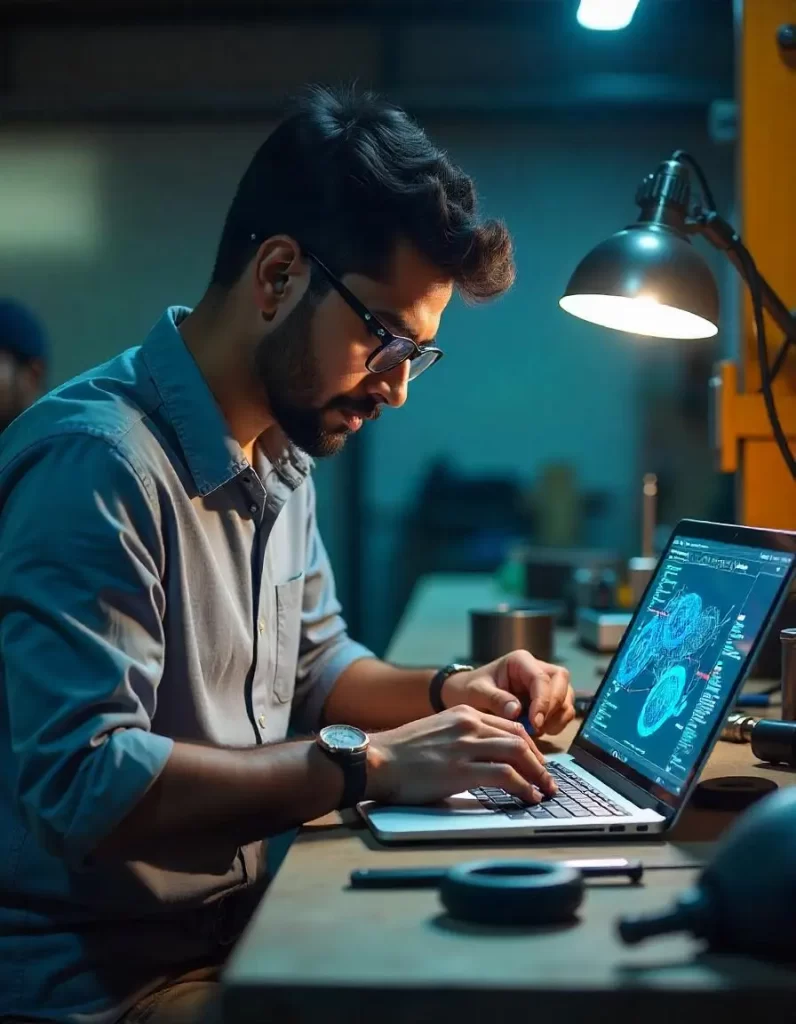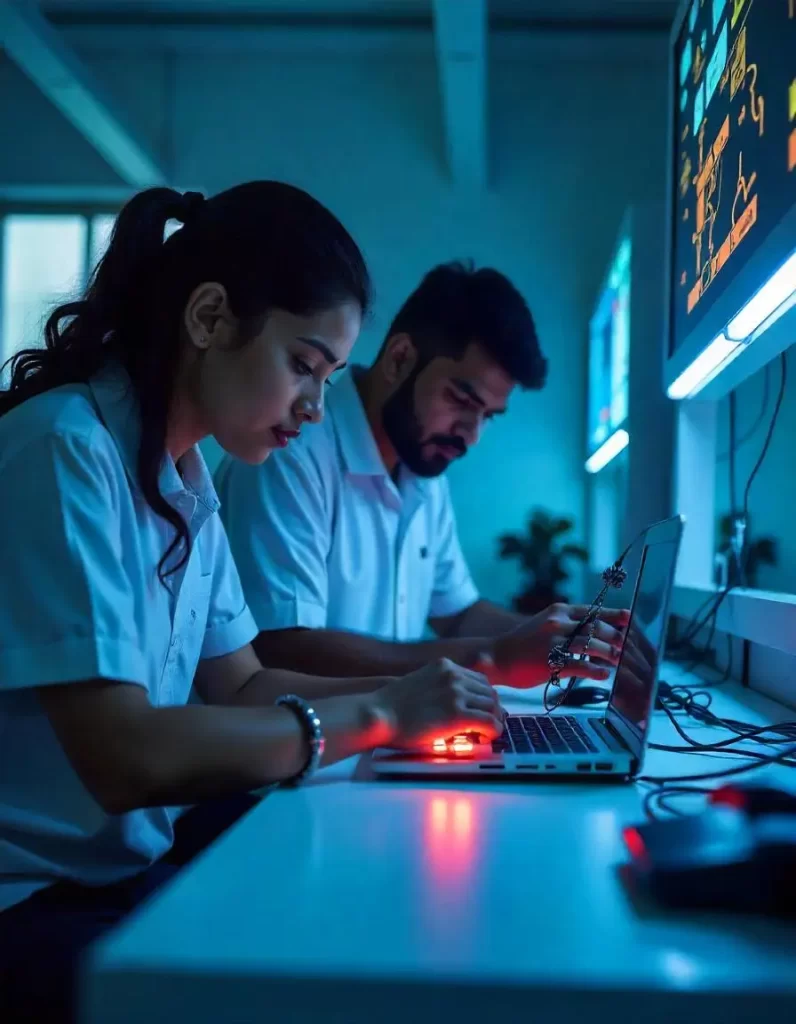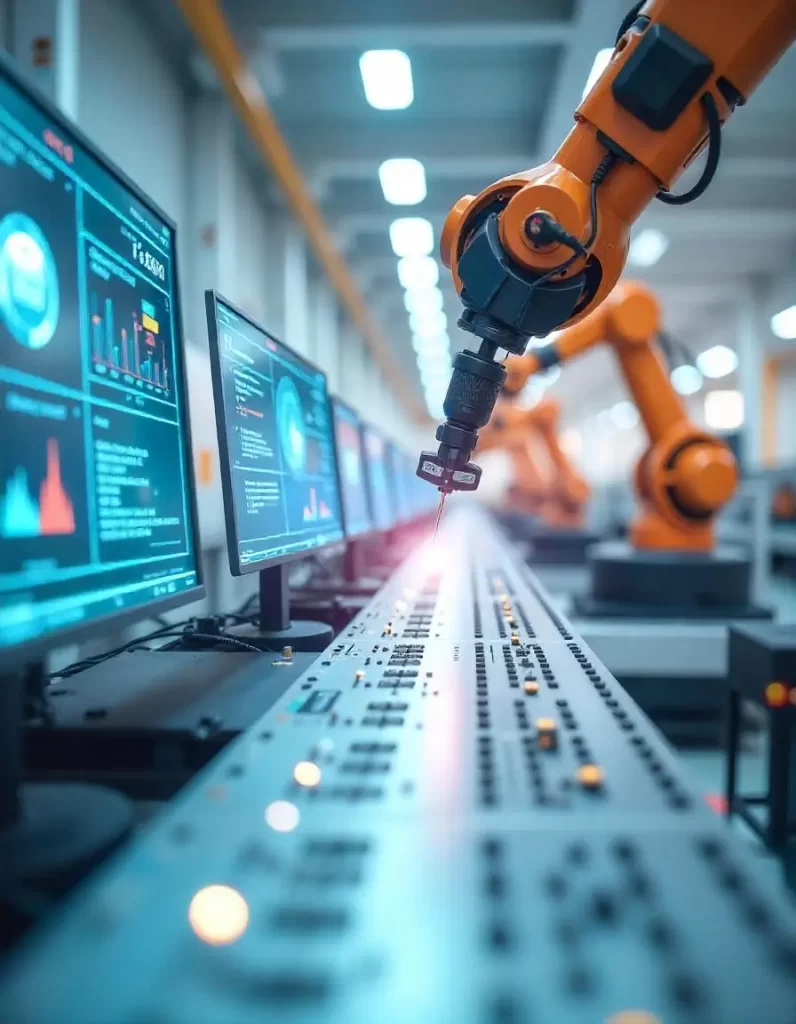Introduction
Artificial Intelligence (AI) is making waves across every engineering discipline—including mechanical engineering. From automating design to predictive maintenance and smart manufacturing, AI is ushering in a new era of efficiency and innovation.
But while machines are getting smarter, one truth remains: mechanical engineering still needs human hands and minds. At MKCE Engineering College, we believe in a balanced approach—where AI-driven innovation and core mechanical skills go hand in hand to shape the engineers of tomorrow.
In this blog, we explore how AI is transforming mechanical engineering, why hands-on skills still matter, and how MKCE prepares its students to thrive in this evolving landscape.
The AI Revolution in Mechanical Engineering
Mechanical engineering is traditionally known for its reliance on physical principles, material mechanics, thermodynamics, and design. But now, AI is changing how engineers approach problems and solutions.
Key Applications of AI in Mechanical Engineering:
- Generative Design:
- AI-powered design tools use algorithms to explore thousands of design iterations based on defined constraints.
- Engineers can evaluate optimized solutions quickly, saving time and improving efficiency.
- AI-powered design tools use algorithms to explore thousands of design iterations based on defined constraints.
- Predictive Maintenance:
- Machine learning algorithms analyze sensor data to predict equipment failures before they happen.
- This minimizes downtime, reduces costs, and ensures safety in industrial environments.
- Machine learning algorithms analyze sensor data to predict equipment failures before they happen.
- Quality Control and Inspection:
- AI systems, using computer vision, detect manufacturing defects in real-time.
- Increases product reliability and reduces manual error.
- AI systems, using computer vision, detect manufacturing defects in real-time.
- Robotics and Automation:
- AI enhances robot adaptability, enabling smarter automation in manufacturing and assembly lines.
- Human-robot collaboration is becoming more seamless.
- AI enhances robot adaptability, enabling smarter automation in manufacturing and assembly lines.
- Digital Twin Technology:
- AI models create real-time digital replicas of machines or systems.
- These twins are used for performance monitoring, simulation, and real-time decision-making.
- AI models create real-time digital replicas of machines or systems.

Why Hands-On Skills Still Matter
Despite all the benefits of AI, the importance of traditional mechanical engineering skills has not diminished.
Here’s why practical, hands-on experience is still crucial:
- Understanding Physical Systems:
AI can predict outcomes, but only engineers with mechanical knowledge can interpret results and validate them in real-world conditions. - Design Intuition:
Tools can generate options, but human engineers provide judgment, creativity, and innovation rooted in physical reality. - Safety and Ethics:
Engineers make critical decisions that involve safety protocols, environmental impact, and ethical considerations—areas AI cannot fully comprehend. - Troubleshooting and Adaptation:
When systems fail or unexpected variables arise, human engineers must step in with hands-on problem-solving skills. - Industry Expectations:
Employers still prioritize graduates who can read technical drawings, operate machinery, and apply engineering theories in physical settings.

MKCE’s Approach: Blending AI with Traditional Engineering Skills
At MKCE Engineering College, we’re committed to equipping our students with the best of both worlds—cutting-edge AI tools and solid mechanical engineering fundamentals.
Here’s how we do it:
1. Curriculum Integration
- Courses in machine learning, data analysis, and AI applications are integrated into the mechanical engineering curriculum.
- Subjects like robotics, control systems, and smart manufacturing expose students to interdisciplinary applications.
2. Advanced Laboratories
- State-of-the-art labs with CNC machines, 3D printers, thermal systems, and simulation tools provide real-world experience.
- Students get hands-on exposure to AI-powered tools used in industries.
3. Industry Collaboration
- MKCE partners with industries for internships, live projects, and industrial visits.
- Students learn how AI is applied in real-world mechanical systems—from automotive to aerospace sectors.
4. Capstone Projects and Research
- Final-year students work on AI-integrated mechanical projects such as automated fault detection, smart energy systems, and intelligent manufacturing units.
- Encourages creativity, innovation, and technical depth.
5. Workshops & Hackathons
- Regular AI-focused events, design challenges, and technical bootcamps help students build relevant skills beyond the classroom.

Career Opportunities at the Intersection of AI and Mechanical Engineering
Mechanical engineers with AI skills are in high demand across industries:
- Smart Manufacturing Engineer
- Robotics System Designer
- Automation Specialist
- AI-based Product Development Engineer
- Digital Twin Analyst
- Maintenance Predictive Analyst
- CAD/CAE Engineer with AI Integration
These roles combine mechanical knowledge with AI tools like Python, MATLAB, TensorFlow, and digital simulation platforms.

What the Future Looks Like
The fusion of AI and mechanical engineering is not just a trend—it’s the future. AI will continue to automate routine tasks and optimize complex systems. But creative thinking, ethical judgment, hands-on ability, and problem-solving will always be the engineer’s superpowers.
At MKCE, our goal is to nurture engineers who think, build, and lead—engineers who can write code and also tighten a bolt, who can simulate a system and also understand how it behaves in the real world.
Final Thoughts
AI is changing the landscape of mechanical engineering—but it’s not replacing it. Instead, it’s enhancing the possibilities and redefining how engineers create, test, and innovate. Hands-on skills, deep technical knowledge, and critical thinking are more important than ever in this new AI-powered era.
At MKCE Engineering College, we are proud to prepare our students for this transformation—equipping them with the tools to engineer smarter systems and build smarter futures.
- AI in mechanical engineering
- Mechanical engineering and artificial intelligence
- Engineering education in India
- MKCE Engineering College
- Mechanical AI tools